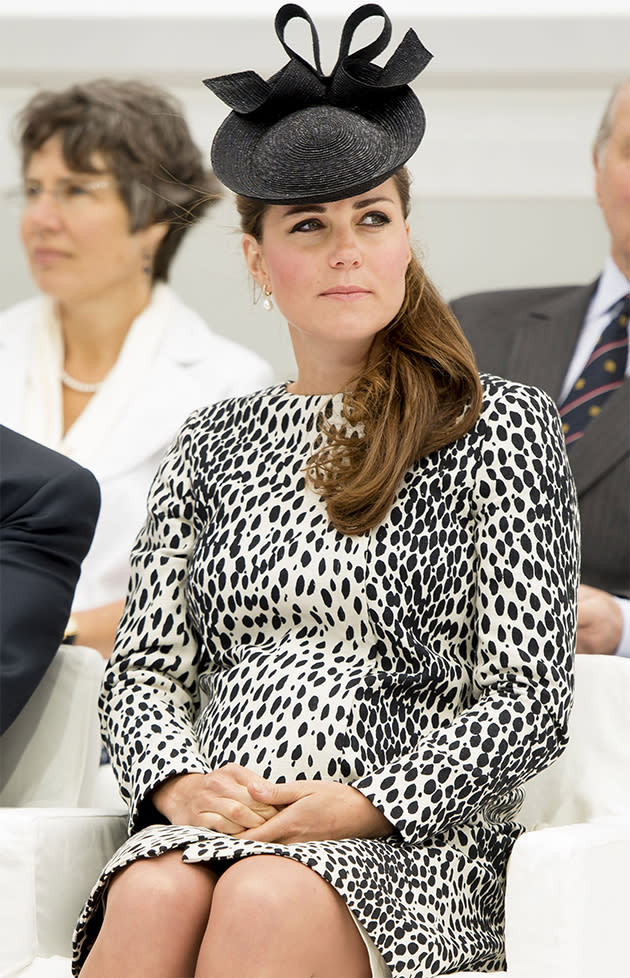 Yahoo Lifestyle
Yahoo LifestyleRoyal baby watch: Could Kate Middleton have up to a WEEK to go until she gives birth?
Duchess of Cambridge may be feeling frustrated now she's 40 weeks pregnant, but she's still not 'post-term' meaning she could have to wait until July 27 at the latest
The world may be growing impatient waiting for news of the royal baby's arrival (although none more than Kate Middleton, we're sure), but she still could have over a week to go until she gives birth.

The Duchess of Cambridge is five days past her due date and now 40 weeks pregnant, but despite having the world's media camped outside the Lindo Wing of St Mary's Hospital, Paddington - she's still not at the 'post-term' stage of pregnancy.
[Royal Baby first pictures! Kate and Wills coo over their newborn in hilarious spoof]
[What to expect in the first three months with your baby]
[How will Kate and Wills bring up their baby?]
As frustrating as this period can be for parents-to-be waiting to meet their new arrival (and the world's media), this is hugely common for expectant women.

In fact, only five per cent of pregnant women give birth on their actual due date, with most watching the day come and go - particularly when expecting their first baby.
According to BabyCentre, this means that if Kate's due date was 13 July, we can expect the baby to arrive by 27 July at the very latest - nine days from now.
Relaxing, doing some gentle exercise - such as walking or yoga - can help her to prepare for labour, as well as hopefully stopping her getting too fed up in the latent stages.
But while Kate has yet to meet her new prince or princess, she may take some comfort with news that the royal baby has probably grown to around the size of a small pumpkin now - all that way from an orange seed.
At around 40 weeks, babies can weigh just under 3.5kg and around 51.2cm long from head to heel.
And if Kate gets too uncomfortable, there are a number of techniques rumoured to help start labour, ranging from eating pineapple, drinking raspberry leaf tea and having sex.
But of course if Kate’s labour doesn't start on its own, she may need to be induced. In some cases, the risks of prolonging a pregnancy are higher than the risks of induction.
Most practitioners will induce labour if a woman is still pregnant between one and two weeks after her due date. This is because her body may become less effective at delivering nutrients to the baby at around 42 weeks.
Got any tips for keeping Kate comfortable in the last stage of her pregnancy? Share them with us over on Twitter, now.

